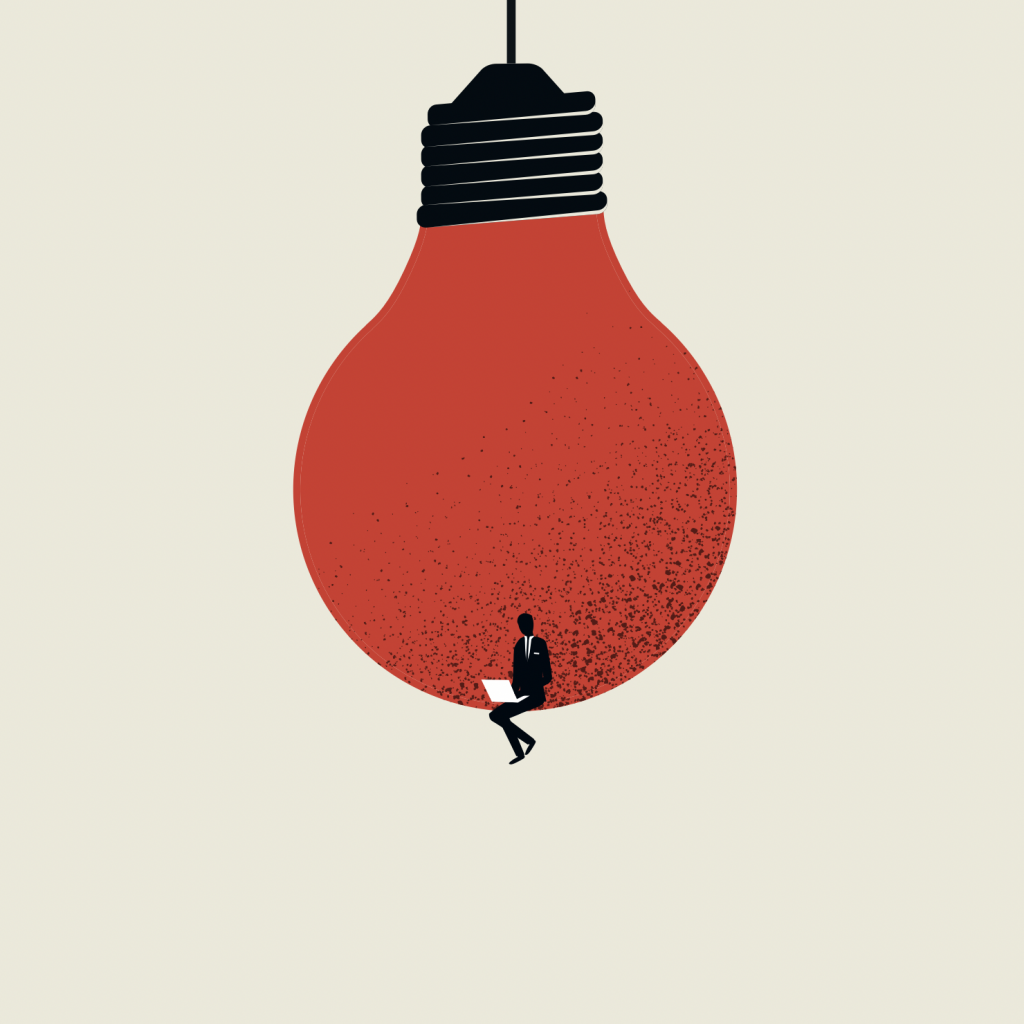
Hugh L. Stephens
Distinguished Fellow Asia Pacific Foundation of Canada Vice Chair Canadian Committee on Pacific Economic Cooperation (PECC)

Given a choice between reaching “voluntary” agreements with news publishers for use of news content online and being compelled to do so by government, the dominant internet platforms (Google, Facebook) are now doubling down on negotiations with news providers. Mind you, there is nothing like a hanging in the morning to focus the mind. The latest confirmation that the platforms would prefer to negotiate “voluntarily” rather than face legislation compelling them to do so, or worse, have a government arbitrator set the terms of the agreement, was the announcement last month that Google Canada has reached agreements with eight Canadian publishers, including one major Canadian nationwide daily (The Globe and Mail) to license content and pay news organizations to create and curate journalism. This came on the heels of Facebook’s recent announcement that it had reached agreement with 14 Canadian news providers, most of them small digital players, to pay for some content on the platform.
The sudden interest on the part of the platforms in reaching deals with news content providers is not born of charity or concern for the fate of news publishers. It is a direct response to mounting pressure on governments, and by governments, to deal with the issue of the market dominance of the platforms in online advertising, and the fact that part of their offering to attract viewers is use of content created and produced by news publishers.
It is open to interpretation whether or not it is consistent with copyright law for platforms like Google News to scrape content from news sites in order to display headlines and snippets (brief excerpts) of news stories. That is why the EU created a new neighbouring right for publishersthrough Article 15 of its Copyright Directive, providing news publishers (as opposed to the journalists who create specific stories) with a new right over content they publish, valid for a two year period from the date of publication. This tool was placed in the hands of the publishers supposedly to strengthen their hand in negotiations with the platforms.
This has been a hot topic for a few years now. Attempts to deal with platform free-riding on news content produced by others go back to 2014 when both Germany and Spain enacted a publishers’ right to provide publishers with leverage in negotiations with the major internet platforms. At that time, the main concern was Google’s dominance. Google won the first round, bringing German publishers to heel by threatening to downgrade their search results, and by closing down Google News in Spain. With the enactment of the publishers’ right at the EU level in 2019, the tide began to turn.
France was the first to move to enact the new provision into national law leading, not surprisingly, to a confrontation with Google. After protracted legal struggles and political lobbying, Google decided that negotiation was preferable to confrontation, and managed to reach agreement with a majority of (but not all) French publishers. They negotiated with some major publications as well as a consortium of publishers known as APIG (Alliance de la presse d’information generale) but some other major news providers, such as Agence France Presse, were excluded. Now a ruling by France’s Competition Bureau has put the APIG deal in doubt. According to press reports, antitrust investigators have accused Google of “failing to comply with the French competition authority’s orders on how to conduct negotiations with news publishers over copyright”. On July 13, the Authority fined Google 500 million Euros ($593 million) for failing to negotiate with the publishers “in good faith” as earlier instructed by the Authority. Google was ordered to present a reasonable offer to the publishers for use of content within two months or face a fine of up to 900,000 Euros a day. Now that’s talking tough. The ruling addresses issues that arise from the nature of the negotiations between the platforms and publishers, whether with individual news providers or with a group or groups of publishers. Because of their scale, the platforms can use “divide and conquer” tactics giving them the upper hand.
In Australia, the government dealt with this by introducing legislation that would have required both Facebook and Google to submit to binding “final offer” arbitration if they were not able to reach revenue sharing agreements for use of content with Australian media providers, giving news providers an additional lever. After unsuccessful attempts to overturn the legislation by threatening to abandon the Australian market (Google) or shutting down all Australian news feeds on its service (Facebook), campaigns which spectacularly backfired, both platforms agreed to negotiate with Australian media publishers, avoiding application of the Code. Since then some impressive deals have been struck, resulting in substantial ongoing payments to Australian media.

Google had already seen the writing on the wall. In 2020, it launched its Google News Showcase, an initiative billed at $1 billion (over 3 years) to support journalism by licensing content from news media outlets in a number of countries. (Canada, Germany, Brazil, Argentina, the UK and Australia were the countries initially named). At the time, very few major media companies signed on; Germany’s Der Spiegel and Stern were initially among the few large players to participate. No sooner was it announced, than in Australia the program was suspended as a means of pressuring the government to drop its legislation targetting the platforms. It was not implemented in Canada because no major media outlets agreed to take part. Google was more successful in Britain, however. In February it was announced that the platform had reached agreement with 120 British publishers, including the Financial Times and Reuters.
The determination of the Australian government to stand up to the pressure tactics of Facebook and Google was favourably noted—in the USwhere publishers are supporting draft legislation that would allow news organizations to bargain collectively with platforms by providing a limited time exemption from anti-trust legislation–and in Canada, where Heritage Minister Steven Guilbeault, has committed to bring in legislation similar to that passed in Australia. Guilbeault, however, has not delivered, much to the chagrin of News Media Canada (NMC), the lobby group representing the news publishing industry (the self-described “voice of the print and digital media industry in Canada”). As I noted in a recent blog posting, “An Open Letter to Justin Trudeau: Canada’s News Publishers up the Pressure on Facebook and Google”, NMC is unhappy that the Trudeau government has not got around to introducing the promised legislation because they believe it would strengthen their position in negotiations with the platforms. (Separate legislation introduced in the Canadian Senate by an opposition Senator and modelled on the EU neighbouring rights provisions, is going nowhere. Senate bills rarely make it through the legislative process and bills sponsored by non-government Senators stand even less chance).
The “Open Letter”, which appeared on June 9, blanked out the front page of many daily papers in Canada, including the National Post, Toronto Starand many of the city dailies owned by the Postmedia Group. At the time I mentally noted that the Globe and Mail, and my local daily, the Times-Colonist (Victoria), did not publish the “Open Letter”. Now I know why. In addition to the Globe, Glacier Media, the owner of the Times-Colonist (and many other smaller community papers and specialty industry publications), along with Black Media, another publisher of many community papers, were among those that reached agreement with Google, despite being members of News Media Canada. That leaves Postmedia, the publisher of daily papers in most major cities in English Canada, the TorStar Corporation, publisher of the Toronto Star and Quebecor, the publishers of French language dailies in Montreal and Quebec City, out in the cold, at least for now.
This piecemeal approach is one of the biggest problems facing publishers, whether in Canada, France, the US or elsewhere (except in Australia, where the compulsory arbitration requirement backstops the process) because the deep pockets of the platforms give them a negotiating advantage. Initially, in most countries, Google and Facebook were able to make deals only with small digital outlets primarily. For these small-scale start-ups, funding from the platforms must have seemed like manna from heaven. The major publishers resisted but inevitably the common front began to crack as each outlet determined what was in its best interest.
In the US there have, to date, been no revenue sharing agreements for use of content between US news publishers and Google or Facebook. Many publishers would rather deal collectively with the platforms rather than being picked off one by one. This is one of the prime reasons for the (re)introduction of the Journalism Competition and Preservation Act (JCPA) in the US Congress. According to its bipartisan sponsors, “this bill will support the independence of local papers by giving news publishers the power to collectively negotiate with digital platforms like Google and Facebook”.

The US is not the only country (besides Australia) to recognize the negotiation imbalance. In Denmark, thirty media companies have decided to come together to bargain collectively with the platforms. This reflects a longstanding Scandinavian preference for cooperation among copyright and collective rights organizations, as I wrote about after my visit to Denmark a couple of years ago.
While the draft US legislation to provide news publishers with an anti-trust exemption has bipartisan support, it has been criticized by two well-known anti-copyright advocacy groups, Public Knowledge (PK) and the Authors Alliance. Their gripe is that the JCPA “could be interpreted by courts to implicitly expand the scope of copyright.”
Presumably they are referring to this language, which forms the core of the Bill;
“A news content creator may not be held liable under the antitrust laws for engaging in negotiations with any other news content creator during the 4-year period beginning on the date of enactment of this Act to collectively withhold content from, or negotiate with, an online content distributor regarding the terms on which the news content of the news content creator may be distributed by the online content distributor…”
According to commentary published by both PK and the Alliance, their concern is that hyperlinks could be subjected to copyright protection, and that access to snippets of information that may be subject to fair use would likewise be legally constrained through court interpretations. This is not only a pretty far-fetched conclusion (there is absolutely no reference, implicit or otherwise, to hyperlinks in the legislation), but also attacks one of the fundamental principles of copyright, namely that a creator has the right to determine whether or not, and how, their content will be made available. If content is made openly available by the copyright holder, it may be subject to limited fair use access, but if a rights-holder decides to withhold or restrict access to content by putting it behind a paywall for example, that is their right. According to Public Knowledge (PK), the Bill could be interpreted to implicitly create “a new right that would allow news sites to withhold content until or unless they receive the compensation they seek”. PK wants additions to the legislation to make it clear that copyright protection is not being expanded by the law to include linking, or fair use snippets of linked material. This is a red herring and totally unnecessary, raising a straw man to knock down where none exists. It almost looks as if PK is using this as an opportunity to try to sneak in new limitations to copyright protection that have no basis in the law.
PK has a variety of other objections to the draft legislation as well, despite claiming that it supports US journalism and access to trustworthy sources of news. Its objections are hard to reconcile with the objective of enabling the news media to negotiate fair compensation from the dominant internet platforms.
Having the ability to deal with giant digital companies like Google and Facebook to get fair compensation for use of news content is the nub of the issue for news publishers large and small in many countries, including the US. Robust government enforcement of competition law (or threats to amend competition law through new legislation) seems to be one way of ensuring a more balanced negotiation, and of bringing the platforms to the table. Allowing publishers to work together, to the extent that they are interested in doing so, is another. At the end of the day, the final outcome should be a deal that fairly compensates those who invest in gathering and creating the news, allowing them sufficient financial security to continue doing what they do best, while leveraging the ubiquitous reach of the internet to promote greater access to curated, responsible journalism.
Paragraph 5 has been updated to reflect the decision of France’s Competition Authority to fine Google 500 million Euros for failing to negotiate “in good faith” with French publishers.
This article was originally published in Hugh Stephens Blog.